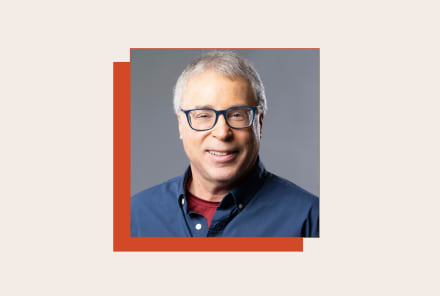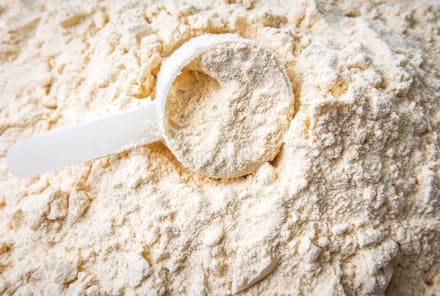Advertisement
This One Thing Plays A Huge Role In Slowing Your Metabolism (And What To Do About It)

The metabolism mystery.
When the metabolism is not working properly, we store too much fuel and we are unable to retrieve it. This leads to extra pounds and a host of other adverse effects—everything from brain fog to digestive problems to fatigue to diabetes to various forms of cancer.
There's a common misconception that you are born with either a great metabolism or a bad one. But it turns out that metabolism is not fixed. You can change. The secret that I discovered in my years of clinical practice and research is simply this: Clean out your liver so that it can burn fat better.
It's all about your liver.
The liver is a powerful machine that acts as a filter to remove toxins, aids in digestion, and regulates hormones and blood sugar. It's an incredible multitasker and a vital organ in the truest sense of the word—the hub through which your body's energy flows.
What happens when your liver is unhealthy? You tend to store fuel as fat, especially around your midsection, and you can no longer tap into the nutrients you need to burn fat. This means that no matter which diet you choose—and how hard you try—weight loss is pretty much impossible.
A healthy liver can either store fuel or burn it. An unhealthy liver can only store it.
Sound familiar?
Countless diets have told us to eat this "good food" and avoid that "bad food." Meat, grains, butter, legumes, ketones, potatoes, tofu, canola oil—are they good or bad? Each passing day seems to bring a new wave of "science" that cancels out all previous assessments. In fact, fat, carbs, and ketones work collectively as fuel. A healthy liver can either store fuel or burn it. An unhealthy liver can only store it. All sources of fuel look the same to your liver—none are magic tonics or evil villains. This means that once you heal your liver, eating that piece of cake won't be catastrophic. Your metabolism will be flexible enough to adapt and handle whatever curveballs you throw its way.
That's very good news. And even better news? Healing your liver takes weeks—not months or years. The liver is an astonishingly resilient organ. With the steps I'm going to give you in this book, you can restore it to perfect working order in just a few weeks.

A fuel's journey.
Your liver stores fuel in two forms: glycogen and triglycerides. When it is healthy, it keeps a supply of each fuel, with room to take on more of each. Triglycerides are the ultimate version of stored fuel. The liver can make them out of anything—carbs, fats, ketones, even alcohol. They also store a lot of energy and don't take up much room.
Glycogen is more particular. It can be made only out of carbohydrates and contains much less energy. It has an advantage over triglycerides—the energy stored in glycogen is more readily available. It is easier to burn triglycerides for fuel when you have some glycogen to get it started. Think about triglycerides as coals and glycogen as lighter fluid.
Here is where things can go wrong. When the liver is overloaded with too many triglycerides, there is no more room for glycogen. Without glycogen, it is hard to burn triglycerides for fuel, effectively clearing them out. When a load of new fuel comes in from the last meal and the liver is already clogged, all it can do is jam in even more triglycerides or send the fuel away to get stored as body fat.
Ultimately, it does not matter if your fuel comes from carbs, dietary fat, ketones, body fat, or alcohol. When there is too much fuel, it becomes triglycerides. When there are too many triglycerides, they clog the liver, increase body fat, and cause disease.
Once you restore your liver function, you’ll be able to maintain a healthy weight without Herculean effort.
A brand-new approach.
The primacy of the liver helps explain why low-fat, low-carb, and ketogenic diets have no special advantage over one another. If you restrict one type of fuel and add more, nothing is gained. For people with poor liver function, sorting out "good" from "bad" food is merely a distraction.
Once you restore your liver function, you'll be able to maintain a healthy weight without Herculean effort. And what's more, you'll have more energy, sleep better, and be at less risk for heart disease and many cancers.
The Metabolism Reset Diet works because it heals the core issue behind a slow metabolism—an overloaded liver. The program provides the perfect conditions to help the liver clear out its backlogged fuel and start working right again—and regain metabolic flexibility that you may not have experienced since you were a child.
The Metabolism Reset Diet: Repair Your Liver, Stop Storing Fat, and Lose Weight Naturally by Dr. Alan Christianson is available now.


















